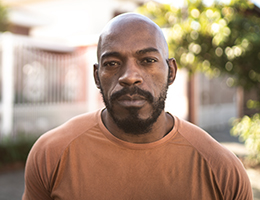
March 26, 2021—Vasectomy is a popular and effective choice of birth control for men. But what happens if a guy changes his mind and decides that he wants children? One option is to reverse the vasectomy with surgery.
If you're thinking of doing that, you'll want to know a few facts, courtesy of the American Urological Association and other experts.
What is the procedure like?
During a vasectomy, tubes (called vas deferens) that carry sperm from the testes to the urethra are cut and closed. This prevents sperm from mixing with semen during ejaculation. A reverse vasectomy creates a way for the sperm to mix with semen once again.
Often, this is achieved by reconnecting the cut ends of the vas deferens. This procedure is called a vasovasostomy.
But sometimes there is a blockage in the tubes that would prevent sperm from reaching the semen, even if they are reconnected. In that case, the surgeon might decide to join one end of the vas deferens to the epididymis, a coiled tube on each testicle where maturing sperm are stored. This can bypass the blockage. That procedure is called a vasoepididymostomy.
Doctors can only tell which technique is best to use at the time of the surgery.
How long is the recovery?
A reverse vasectomy is an outpatient surgery. So you can go home the same day.
Many men say the pain after the surgery is close to what they felt after their vasectomy. You should be able to return to most activities, including light work, after about a week.
How successful is the surgery?
Most reverse vasectomies are successful, although it may take some time for your partner to become pregnant.
In many men, sperm will start to reach the semen again within three months, although it can take up to a year or longer if you had a vasoepididymostomy.
The success rate depends, in part, on how much time has elapsed since your vasectomy. One study found a 76% pregnancy rate when vasectomies were reversed within three years of the original procedure. But the success rate dropped to 30% when the reversal was performed 15 or more years later.
A man's age usually doesn't affect the success rate. But his partner's age might. Before you decide to reverse a vasectomy, you and your partner may want to check with her gynecologist to confirm that she is still ovulating.
Is it covered by insurance?
Most health plans do not pay to reverse a vasectomy. So you may have to pay out of pocket if you decide to have the surgery. Check with your plan to see what's covered—and with your surgeon to get a cost estimate.
Are there alternatives?
There are assisted reproductive techniques, where sperm is harvested from a man and injected into his partner's egg in vitro. Adoption can also be a great way to grow or start a family.
Want to know more about fertility treatments? Visit our Reproductive Health topic center.